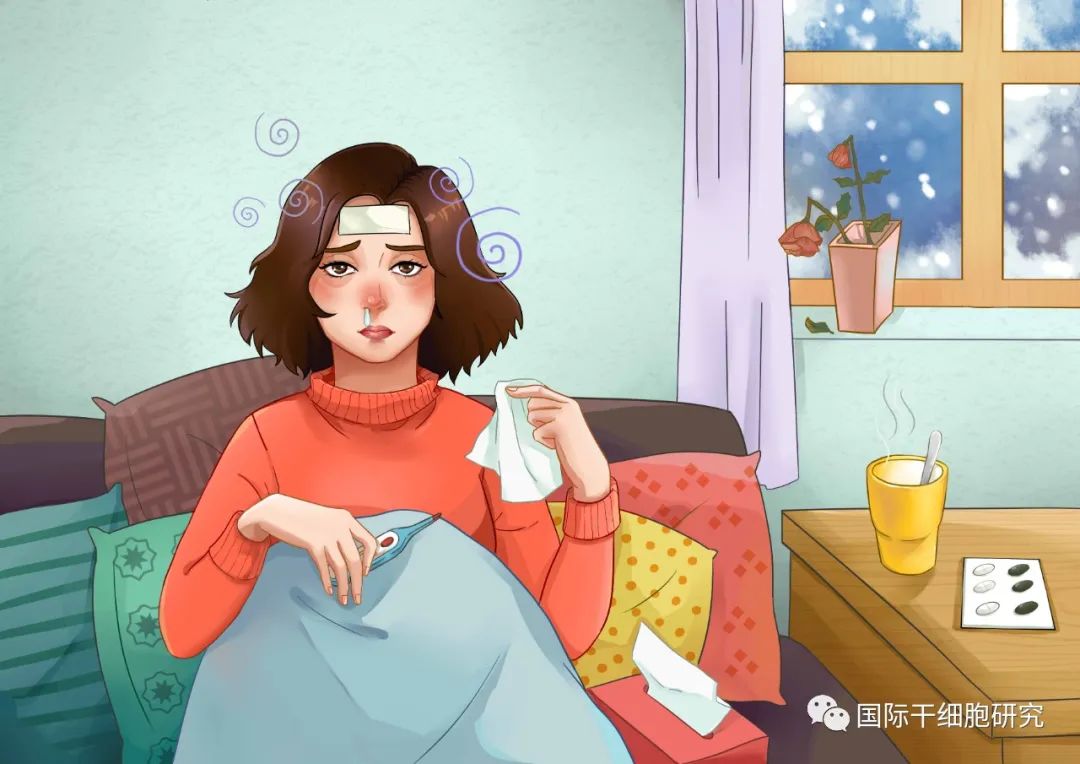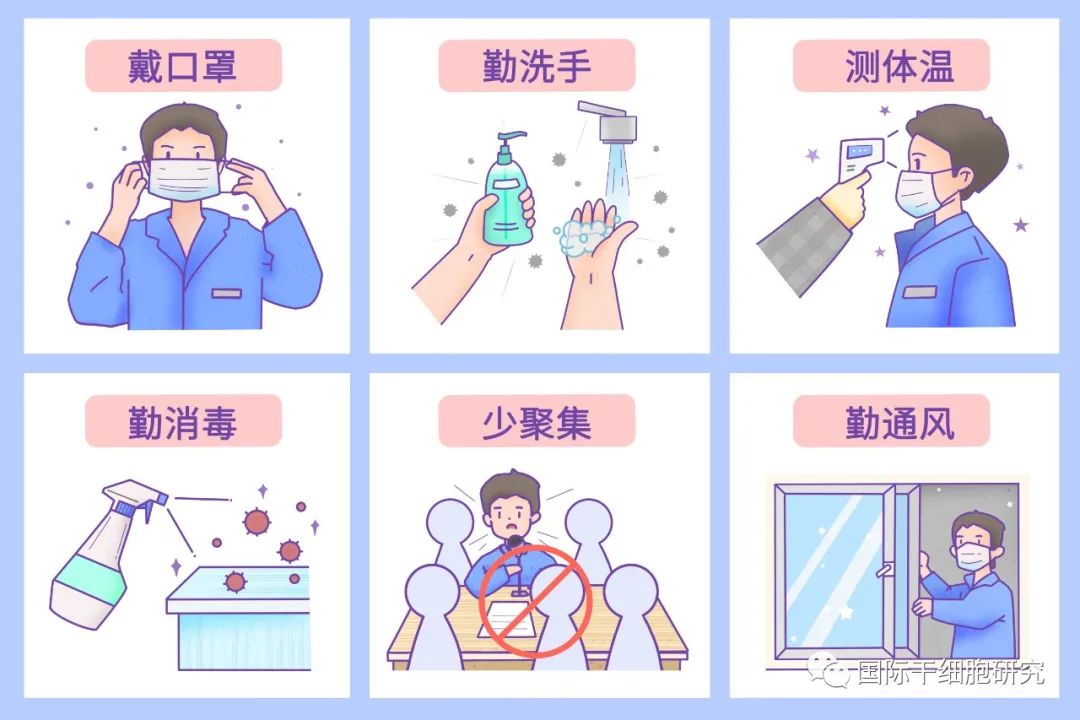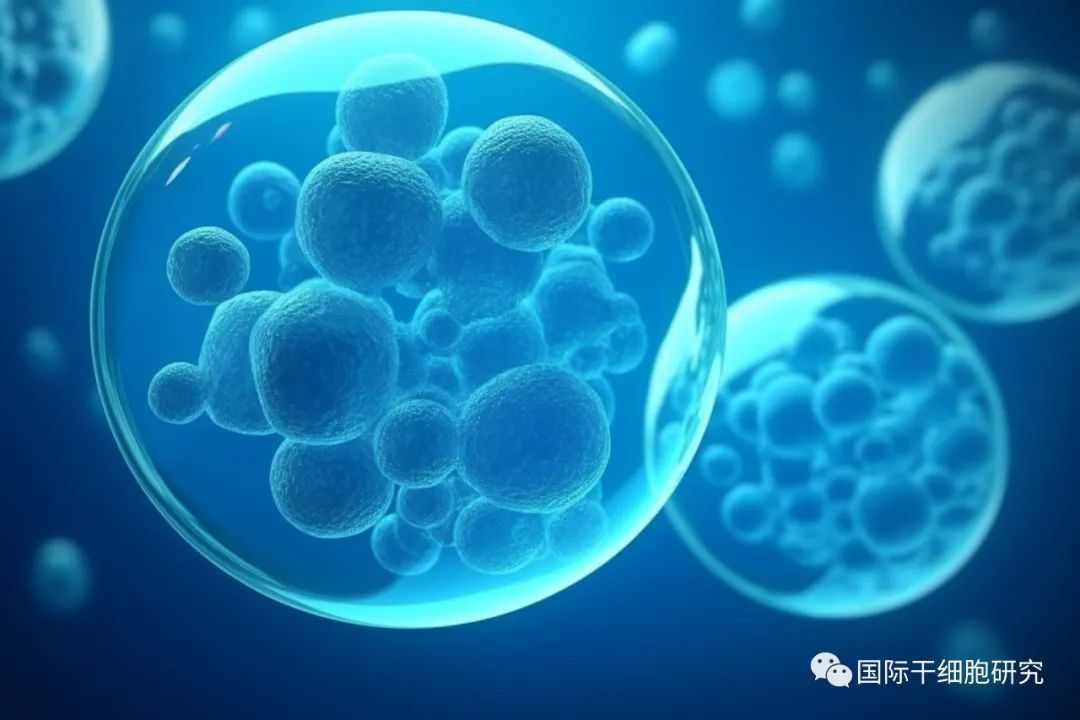
Source: International Stem Cell Research
Recently, the information released by the National Influenza Center shows that in recent days, the temperature in many places in China has plummeted, the temperature difference between day and night has changed greatly, and the flu has occurred frequently, and most provinces have entered the influenza epidemic season this winter, especially the people with poor immunity are more likely to be "hit". In the flu season, in addition to getting a flu vaccine, it is also important to actively improve your immunity and clear the virus through your own "doctor". Speaking of "immunity", everyone is no stranger, but do you know the specific function of the immune system? In addition to doing a good job of daily protection, a balanced diet, appropriate exercise, improve the quality of sleep and other methods, what can improve their own immunity methods? Let's listen to Xiaobian one by one.
What is influenza? How is it different from the common cold?

"Influenza" is a respiratory infectious disease caused by influenza virus, mostly in winter and spring. It has the characteristics of sudden onset, strong infectivity, rapid spread, short incubation period and so on, which is obviously different from common cold.
First of all, influenza is mostly caused by type A (A) or type B (B) influenza viruses, which can be transmitted through air droplets and contact, and has the characteristics of rapid mutation and universal susceptibility.
Secondly, the symptoms of influenza are generally heavier than those of common cold. After the onset of influenza, patients can have sudden high fever, headache, dizziness, body aches, fatigue and other manifestations, and can also be accompanied by respiratory symptoms such as cough, runny nose, tears, and sore throat. Or vomiting, abdominal pain, abdominal distension and other gastrointestinal symptoms.
What's the magic of the immune system?

The immune system is the natural defense mechanism of the human body, with a complete "immune surveillance" function, and can more accurately distinguish between "companions" and "enemies". On the one hand, it plays a role in removing bacteria, viruses, foreign bodies and other functions, and on the other hand, it removes senescent cells and mutated cells in the body (if the mutated cells cannot be cleared by the immune system in time, with continuous accumulation, the immune system will not be able to eliminate them). Can turn into cancer).
However, the pace of work and life in modern society is fast. If you are in a stressful and high-pressure mood for a long time, coupled with aging, sedentary, unbalanced dietary nutrition, smoking and other multiple factors, it may lead to impaired immune function, and once the immune balance is broken, it may lead to the occurrence of some diseases.
If the immune function is overactive due to some pathological factors, it may lead to the occurrence of autoimmune diseases such as systemic lupus erythematosus and rheumatoid arthritis. If immune function is suppressed, it may increase the likelihood of infection, chronic inflammation and tumors.
In healthy people, the immune system is strong enough to clear the mutated cancer cells in time; However, for cancer patients, their body resistance is generally poor, unable to effectively recognize and kill cancer cells, in addition, cancer cells can occur through a variety of mechanisms, immune escape, resulting in a large number of tumor cells proliferation, which will further inhibit the immune function of patients, and eventually form a vicious cycle. Therefore, healthy or sub-healthy people, usually pay attention to improve immunity, and strive to kill the disease in the cradle; In addition to traditional treatment such as surgery, radiotherapy and chemotherapy, cancer people can also consider cooperating with immune cell therapy to fight tumors and achieve treatment purposes.
Stem Cells -- The "secret weapon" for sub-healthy People to enhance immunity

There is a "neuro-endocrine immune network" in the human body, which is the command center of the body's physiological metabolism. Among them, the nervous system transmits information through action potentials and chemoelectrical synapses on nerve fibers; The endocrine and immune systems, on the other hand, transmit information mainly through the transport of body fluids. The common clinical diseases such as hypertension and diabetes may be related to the dysfunction of the neuroendocrine immune network.
Although we all know that the strength of immunity is closely related to the body's ability to resist disease. However, for the elderly, frail or suffering from immune system diseases, immune regulation and repair may not be achieved by internal stem cells alone. At this time, it is necessary to supplement exogenous stem cells to improve the immune function of the human body, and maintain the immune system in a "normal" load closer to the natural balance by transfusing stem cells. So that it can fight against infection, influenza or other diseases in an "intensive" way, and achieve the same effect as the traditional Chinese medicine "prevention and control of disease, disease prevention and change". At the same time, stem cells can also improve the body's metabolic function of various lipoproteins to promote human metabolism.
Tumor immunotherapy - a "new" therapeutic weapon for cancer patients
Tumor immunotherapy is not so simple as simply improving immunity, it is a new and effective tumor treatment model, rather than the purpose of health care and disease prevention. It is to enhance the patient's own immune function through active or passive methods, so as to improve the immune system's ability to kill the tumor, and ultimately achieve the purpose of preventing and inhibiting the growth of malignant tumors. The therapy is the fourth largest tumor treatment technology after surgery, radiotherapy and chemotherapy, and at the end of 2013, it was selected as one of the top ten scientific breakthroughs of the year by the American magazine Science, marking the opening of a new era of tumor treatment.
The ideal treatment method of tumor should be to remove tumor cells at the same time, without damaging normal tissue, tumor immunotherapy is supported by this idea came into being. Different from the traditional surgery, radiotherapy and chemotherapy, tumor immunotherapy is to activate the immune system to achieve the purpose of anticancer, can be used in addition to T cell lymphoma, a variety of tumor treatment, and the traditional Chinese medicine "fuzheng dispelling evil" theory has the same wonderful. Tumor immunotherapy can be combined with surgery, radiotherapy, chemotherapy and other methods to improve the body's immunity, prevent tumor recurrence or metastasis and other purposes.
What are the commonly used tumor immunotherapy methods?
According to different mechanisms of action, commonly used tumor immunotherapy methods are mainly divided into the following categories:
1、Active immunotherapy
Tumor vaccines, such as dendritic cell (DC) vaccines, use tumor cells or tumor antigen substances to immunize the body, so that the immune system can produce an immune response against tumor antigens, so as to prevent the growth, metastasis and recurrence of tumors.
2、Passive immunotherapy
(1)Monoclonal antibody therapy: The use of trastuzumab, cetuximab, pabolizumab, nebuliumab and other monoclonal antibodies for treatment.
(2)Adoptive cell immunotherapy: It is to transfer activated and lethal immune cells to tumor patients to improve the anti-tumor ability of the body and ultimately achieve the purpose of killing tumor cells. At present, the cells that can be transferred mainly include CAR T cells (chimeric antigen receptor T cells), tumor infiltrating lymphocytes (TIL), cytokine induced killer cells (CIK), and genetically engineered T cell receptor-T cells (TCR-T).
3、Non-specific immunomodulator therapy
(1)Effector cell stimulants: Including the application of alpha interferon, IL-2 (interleukin-2), among which alpha interferon is a cytokine with anti-tumor activity; IL-2 is an important factor regulating the growth of T cells and NK cells.
(2)Negative immunoregulatory inhibitors: common such as PD-L1 antibody, studies have found that many tumor cells have high expression of PD-L1, so by blocking the binding of PD-L1 and PD-1 (which is an immunosuppressive receptor), the immunosuppressive effect mediated by this mechanism can be suppressed to achieve the purpose of anti-tumor.
Sum up
With the growth of age, or diet, mood, disease and many other factors, can lead to reduced immunity, the body's antiviral ability is also weakened. In light cases, there may be fatigue, burnout and other sub-health states; Severe cases may have a high incidence of colds or flu, wound infection and other consequences, if the mutant cells continue to accumulate, there is also a risk of cancer.
Therefore, people who are frail in age, suffer from immune system diseases themselves or have been in sub-health for a long time can reduce the risk of disease by minimizing going out, regularly opening Windows for ventilation, and paying attention to wearing masks on crowded occasions during the influenza season. In addition, it is particularly important to actively improve the body's immunity at ordinary times. In daily life, immunity can be improved by adjusting diet, regulating mood, and regular exercise. If economic conditions permit, advanced medical means such as reinfusion of stem cells and high concentration of VC can improve their immunity and achieve the effect of health care and disease prevention.